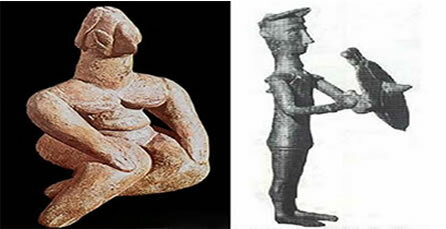In the nineteenth century, different thinkers tried to reflect on the problems caused by developing capitalist societies. Still strongly based on the ideas of Enlightenment thought, these thinkers continued to look to rationalism as a way out of the contradictions generated within capitalist thought. However, these did not make a radical criticism of capitalism, as they still defended the maintenance of its most elementary practices.
Called utopian socialists, these thinkers took the first steps in the development of socialist theories. His main representatives are Robert Owen, Saint-Simon and Charles Fourier. Among them, we can clearly see the construction of an ideal society, where the possibility of creating an organization was defended. where social classes lived in harmony when seeking common interests that were above exploitation or the incessant search for the profit.
British industrialist Robert Owen (1771 – 1858) believed that human character was the result of conditions in the place where it was formed. Therefore, he defended that the adoption of social practices that strive for happiness, harmony and cooperation could overcome the problems caused by the capitalist economy. Following his own principles, Owen reduced the working hours of his workers and advocated the improvement of their housing and education conditions.
Charles Fourier (1772 – 1837) fiercely criticized bourgeois society. In his writings, he advocated a society sustained by cooperative actions. In them, individual talent and pleasure would enable a more prosperous society. Bourgeois society, marked by the repetition and specialty of working-class labor, was against this type of ideal society. Furthermore, Fourier was in favor of ending the distinctions that differentiated the roles assumed between men and women.
Through cooperativism, pleasure and freedom of choice, society would create conditions for achieving socialism. At this stage, the communion between individuals would be fully lived. Without aiming for distinction or dispute, the families of workers would live in the phalansteries, buildings sheltered by 1800 people living in full joy and cooperation.
Saint-Simon (1760 – 1825), believed that a society was divided between producers and idlers. Therefore, he defended another society where the opposition between workers and industrialists should be reconfigured. For this, he preached the maintenance of privileges and profits of industrialists, as long as they assumed the social impacts caused by prosperity. In this way, he believed that in fulfilling his social responsibility, the industrialist could balance social interests.
Making certain assumptions, the utopian socialists were criticized by the scientific socialists. For the latter, utopian socialism projected a society without first properly evaluating the deep-rooted conditions that constituted capitalism. With this, the socialists aspired to define the nature of man and, based on that, to indicate the path between harmony and individual interests.
Do not stop now... There's more after the advertising ;)
See more:
Socialism vs. Anarchism
The characteristics of socialism
Main differences between capitalism and socialism
By Rainer Sousa
Graduated in History
Would you like to reference this text in a school or academic work? Look:
SOUSA, Rainer Gonçalves. "Utopian Socialism"; Brazil School. Available in: https://brasilescola.uol.com.br/historiag/socialismo-utopico.htm. Accessed on June 27, 2021.

